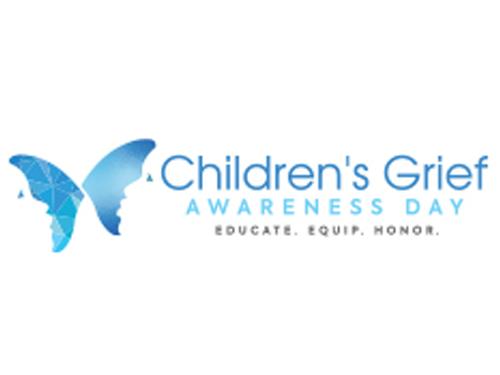How can we help?
888-283-1722
Call us now at 888-283-1722
24/7 Referrals and Nursing Support
Voices of Care Blog

7 Tips for Explaining End of Life to Children
Posted on March 2, 2023 by Sammy McCarthy MS, CCLS, and Sarah Bujold MS, CCLSTalking to young children and teens about end of life can be challenging. Here are seven tips to help you talk to children about death and dying.
-
Assess what your child already knows: Ask them, “What do you know about ____’s illness?” or, “Have you noticed any changes with ___?” Assessing what your child already understands can help guide the conversation and weed out any misconceptions they may have.
-
Provide honest and clear information:
• Younger kids: Use simple and concrete language like, “___ is very, very sick with something called ____, and they are going to die. Dying is when somebody’s body completely stops working. They won’t breathe, eat, sleep, feel pain, etc. anymore.”
• Preteens/teens: Use a more detailed response like, “____’s illness cannot be treated anymore, and they are not going to get better. They are dying. The health care team is going to focus on keeping ____ comfortable.” -
Concepts to consider: Avoid using euphemisms, especially with younger kids, like “passed away,” “lost,” “sleeping,” or “gone away.” If you want to talk about specific religious or spiritual concepts, explain where the person’s physical body is going first (cremation, burial, etc.).
-
Prepare your child: Children of all ages do well with developmentally appropriate preparation for changes in the environment and in their loved ones. Use the five senses when explaining the changes, especially if your child is going to visit with their person. For example, “Grampy sleeps most of the day, but he can still hear you when you visit,” or “Aunt Kelly is not able to walk anymore and spends most of her time sitting in her chair.”
-
Create a space for questions and thoughts: Provide opportunities to check in and see if your child has any questions about end of life or their person. Remind them that you are there if they think of any. It is okay if you don’t know the answer to their questions. Simply say, “I don’t know the answer to that question right now, but I am going to work on finding out and will let you know.”
-
Validate your child’s emotions: Remind your child that it is okay to have any feelings regarding their loved one. Modeling your own emotions and coping strategies can be a great way to normalize anticipatory grief. For example, “Mommy is feeling really sad about ____ dying. I’m going to take a walk; would you like to come?”
-
Inform your child’s school: After having this conversation with your child, inform their school staff so they can keep an eye out for any changes in behaviors and be an extra layer of support.
If you have questions or concerns about explaining end of life to children and teens, please call us at 855-774-5100 or email [email protected]. Also see our Children’s Programs page and our Telling the Kids booklet for more information.
About the authors
Samantha McCarthy, MS, CCLS, is Children’s Program Manager, and Sarah Bujold, MS, CCLS, is Certified Child Life Specialist for Care Dimensions.
Additional Posts
Tips for Caregivers of Grieving Children with Developmental Delays
Posted on January 22, 2026 by Bridget McHallam, Child Life Intern in ChildrenWhen children with developmental delays experience loss, grief can look different. This article explores how children understand death and offers practical ways caregivers can provide comfort and support. ...
Continue readingMemory Making Activities for Children Before and After a Death
Posted on November 17, 2025 by Bridget McHallam, Child Life Specialist Intern in ChildrenFor many children and teenagers, engaging in memory-making activities can be a meaningful way to express love, connection, and remembrance. Here are some suggested activities. ...
Continue readingChildren's Grief Awareness Month: Why it Matters
Posted on October 28, 2025 by Kasey Griffin, MS, CCLS in ChildrenEvery November, we recognize Children’s Grief Awareness Month. Here are some tips on how you can help children who are grieving. ...
Continue readingAnyone—patient, family, care provider—can make a referral. Fill in the form online or call us today.
Since 1978, Care Dimensions, formerly Hospice of the North Shore, has provided comprehensive and compassionate care for individuals and families dealing with life-threatening illnesses. As the non-profit leader in advanced illness care, we offer services in over 100 communities in Massachusetts.
Copyright 2026 | Care Dimensions, 75 Sylvan Street, Suite B-102, Danvers, MA 01923 | 888-283-1722 | 978-774-7566 |









